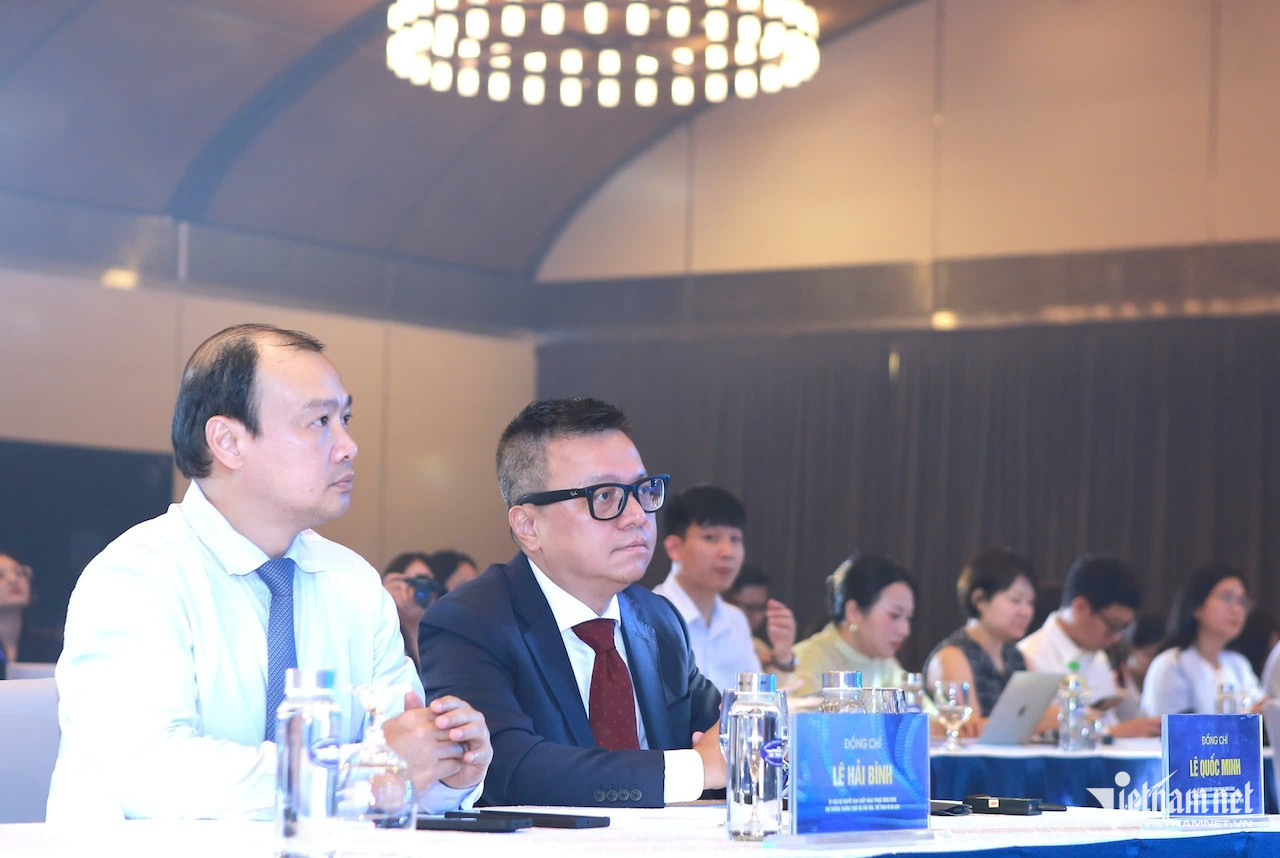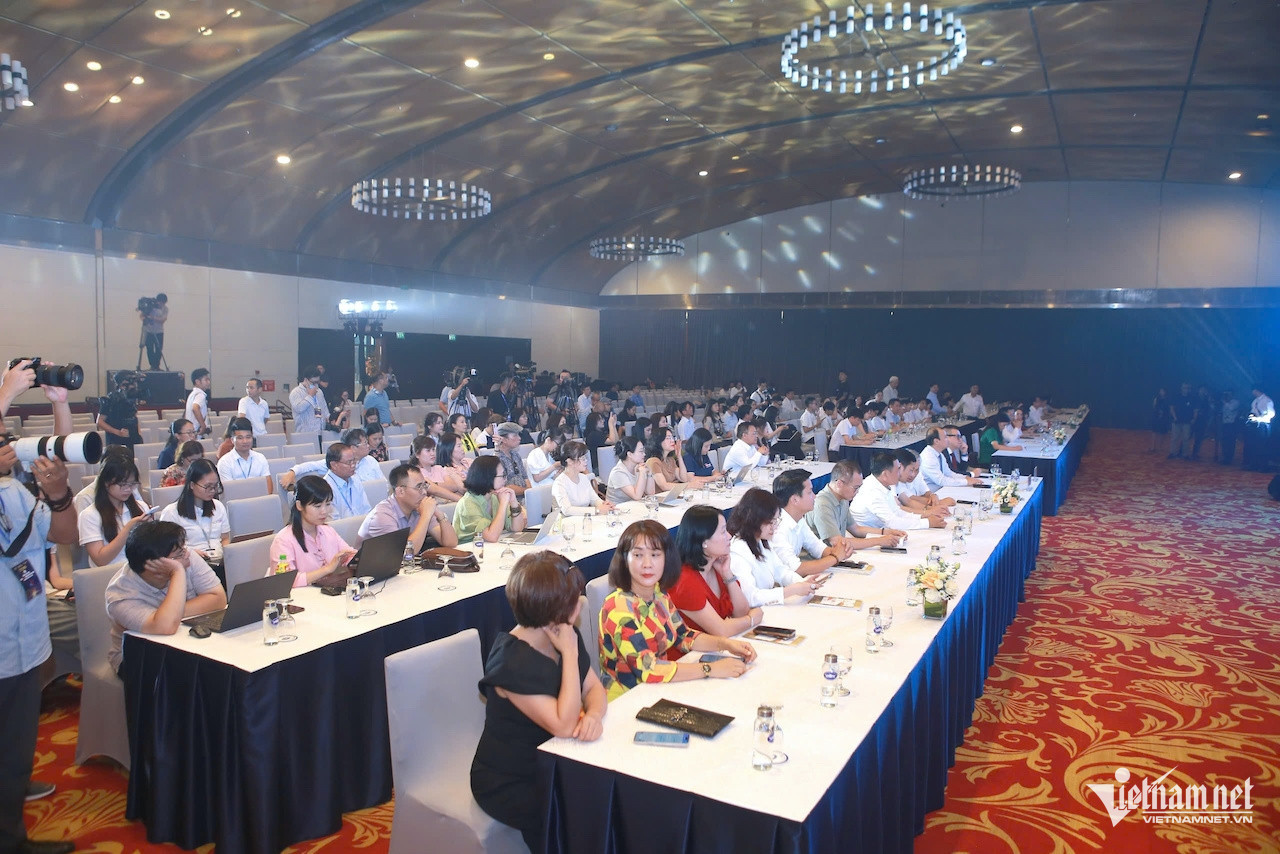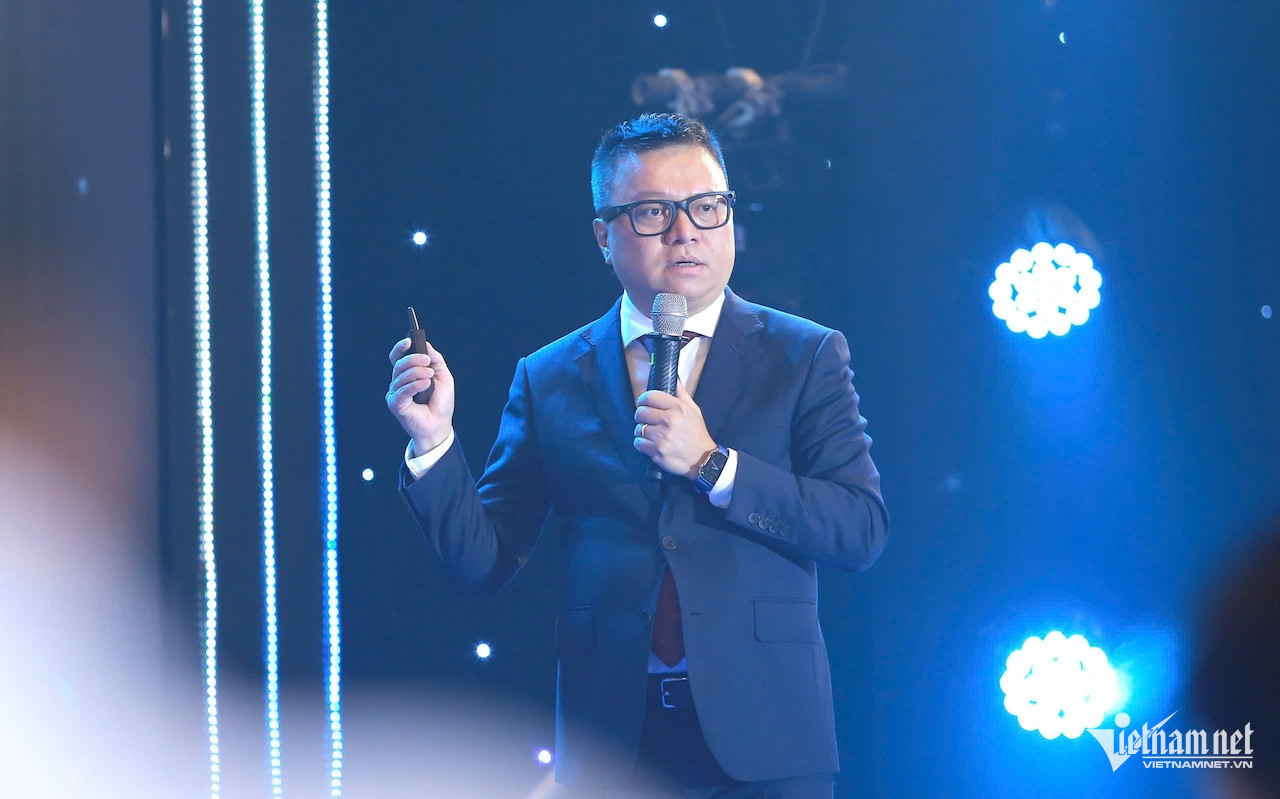On the afternoon of June 19, the Central Propaganda and Education Commission, the Ministry of Culture, Sports and Tourism, and the Vietnam Journalists Association (VJA) jointly held the second National Journalism Forum.
This forum is part of the National Press Festival 2025 and serves as a key highlight in the series of events celebrating the 100th anniversary of Vietnam's Revolutionary Journalism.
Attendees included Le Quoc Minh, member of the Party Central Committee, Editor-in-Chief of Nhan Dan Newspaper, Deputy Head of the Central Propaganda and Education Commission, and Chairman of the Vietnam Journalists Association; Le Hai Binh, alternate member of the Party Central Committee and Permanent Deputy Minister of Culture, Sports and Tourism; Nguyen Thi Su, Deputy General Director of the Vietnam News Agency; and Pham Anh Tuan, Director General of the Department of Grassroots and External Information (Ministry of Culture, Sports and Tourism).
Also present were around 1,000 delegates including leaders of press agencies, renowned journalists, media experts, and speakers participating in 12 sessions of the forum.
Facing formidable challenges

Deputy Minister Le Hai Binh (left) and VJA Chairman Le Quoc Minh at the forum. Photo: Pham Hai
In his opening remarks, Le Quoc Minh identified the major challenges confronting journalism today. Citing a Reuters Institute study published on June 17, he noted a rapid increase in the use of AI chatbots for news consumption, especially among younger users (7% globally, 15% under 25 years old).
Large tech platforms integrating AI news summaries and other features are raising alarms within the journalism community. A new media ecosystem led by YouTubers, TikTokers, and podcasters is directly challenging traditional news outlets.
Additionally, audience behavior has shifted significantly - social media has surpassed television for the first time in terms of access in the U.S., marking a seismic change in information consumption. The rise of social media videos and personality-driven news presents further challenges.
The forum, lasting 1.5 days, features 12 sessions including an opening, closing, and 10 in-depth discussions covering topics such as: "Vietnamese journalism in the new era: Vision to shape a space for development"; "Women leadership in journalism: Female voices in newsroom management"; "Capturing Gen Z: Decoding the success formula"; "AI and digital transformation strategies for Vietnamese newsrooms"; "Revenue in the digital age: Beyond advertising"; "Television’s adaptation in the new media landscape"; "What mechanisms are needed for radio to thrive?"; "Data as the foundation of modern newsrooms"; "Content personalization to retain loyal readers"; and "Resolution 18 and the need for media workforce reform".
The decline in public trust and the growing trend of news avoidance, often due to the perception of overly negative content, were also highlighted.
The report noted that the percentage of people willing to pay for digital news has plateaued at 18% in high-income countries, making it increasingly difficult to attract new subscribers. Businesses are cutting advertising budgets and shifting to platforms that offer precise targeting. Google, Meta, and Amazon now command about 60% of global digital ad revenue, while journalism captures just 5%.
Readers still seek a trustworthy anchor

Deputy Minister Le Hai Binh acknowledged that journalism worldwide has undergone various phases and recently experienced rapid development, heavily influenced by the Fourth Industrial Revolution and powerful new forms of media.
He emphasized that users still look for a place to anchor their trust - and that anchor is journalism. About 40% of the public continues to rely on traditional media, indicating untapped potential.
Many readers still cherish the tactile and olfactory experience of print newspapers, including younger audiences. The long line of young readers eager to receive the special A50 edition of Nhan Dan Newspaper serves as a testament to this enduring appeal.
“This is a great source of encouragement for journalists,” he said, noting that journalism in the new era must meet two core tasks: revolution and development.
Echoing this, Le Quoc Minh affirmed that challenges bring opportunities. He emphasized the need for high-quality content and core journalistic values, especially in an era when AI generates massive volumes of content.
He highlighted the transition from a “traffic era” to a “direct reader era,” encouraging news organizations to collect first-party data to better understand their audiences - similar to the print newspaper era.
In a digital age where AI is embedded in every facet of life, he urged journalists to acquire AI knowledge not only to enhance their work but also to compete effectively with AI tools and digital platforms.
Media expert Le Quoc Vinh argued that journalism’s biggest challenge is regaining public trust through truth. Journalism must go deeper in pursuit of factual accuracy.
“News outlets are currently mimicking what happens on social media. Journalism must stop pandering to these platforms. It cannot be a replica of social media - it must be the gatekeeper, deciding what information the public receives,” he stated.
He called on journalism to act as a lighthouse in a sea of misinformation, guiding the public on what should or should not be trusted.
Upholding the mission to serve the people and accompany the nation

Le Quoc Minh delivers the forum’s opening speech. Photo: Pham Hai
Politburo member and Head of the Central Propaganda and Education Commission Nguyen Trong Nghia emphasized that rapid technological advancement is transforming all aspects of life, presenting both opportunities and challenges for Vietnam’s revolutionary journalism.
To fulfill its responsibilities to the nation and the people, each journalist and media agency must commit to continuous learning, professional development, and enhancing political integrity. They must embrace bold innovation, digital transformation, and AI to revamp news production, distribution, and engagement.
Journalism must treat innovation as a driving force and technology as a tool to elevate Vietnamese media. More importantly, it must reform from within - rethinking media leadership, newsroom models, production methods, content distribution, and audience relations.
Media should deepen its role in societal critique, protect the ideological foundation of the Party, foster unity and consensus, ignite patriotism and national pride, inspire aspiration and dedication, and contribute to Vietnam’s confident march into a new era of prosperity and civilization.
Vietnamese revolutionary journalism has a century of proud history. But its true value lies in continuing the journey with bold ambition.
“I hope each journalist and news organization will join in shaping the future - innovating thinking, refreshing expression, and deepening societal roles. The public’s presence at today’s National Press Festival reaffirms their trust and hopes in dedicated journalists and impactful revolutionary journalism that will shine and lead the way in this new national era,” Nghia concluded.
N. Huyen